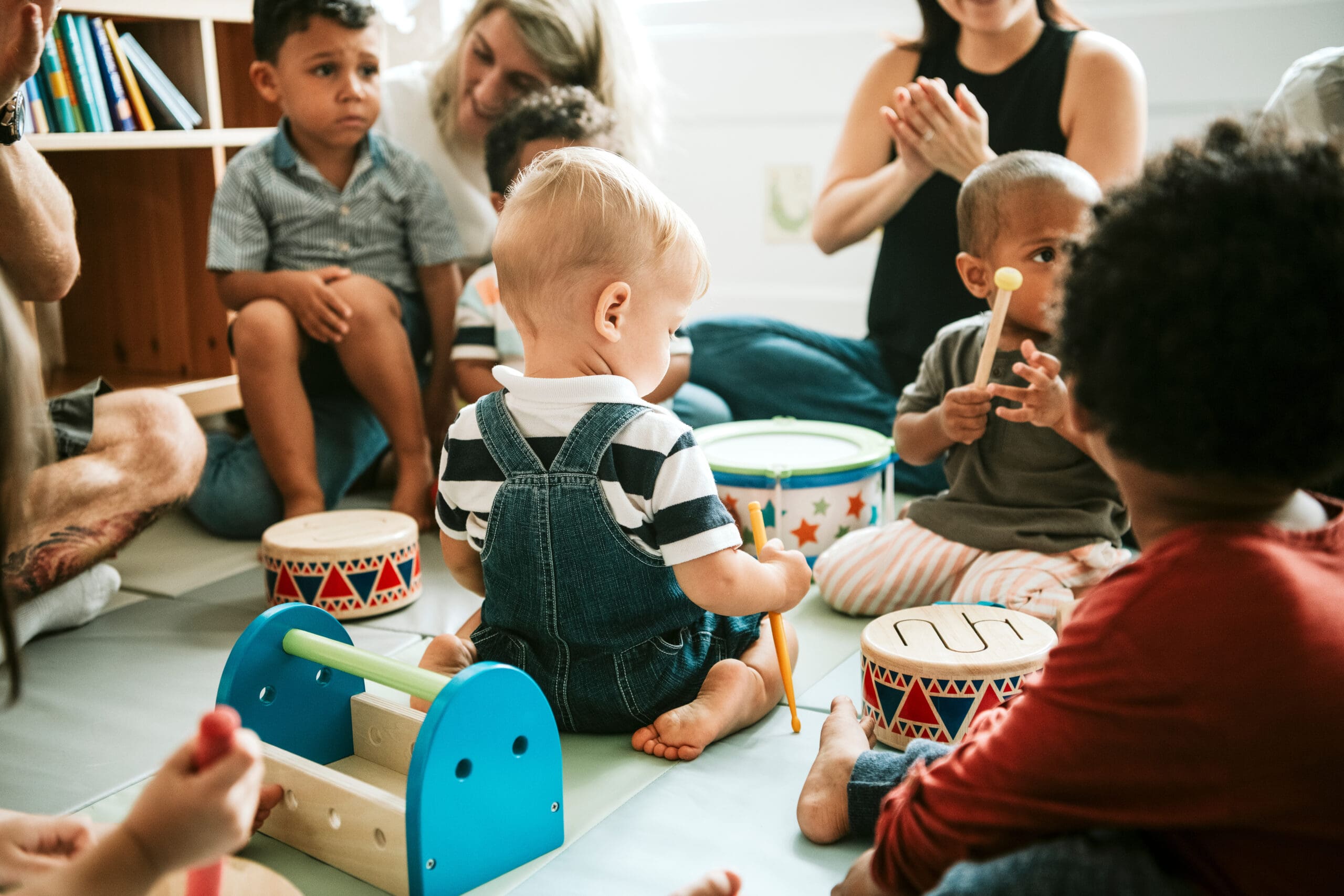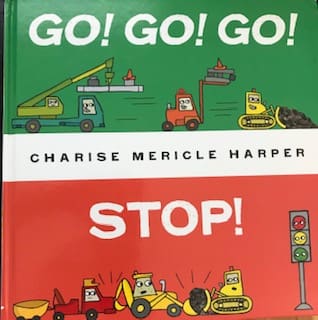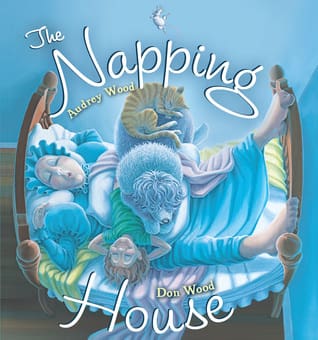What should I (the caregiver) do during playgroup?
First, be present and engaged. Please do your best not to be on your phone.
Play with your child and talk to other adults in the group. Connect with other adults in the room, those you know and those you don’t yet—remember you are all caring for young children and may have ways to support one another.
Follow your child’s lead and let them show you what they are interested in and what they can do. Give them the space to explore, and support them when they ask for help. A good acronym to keep in mind when playing with your child is OWL: Observe, Wait, Listen.
Sometimes, children will take toys from one another or hit. That’s normal for toddlers. I will step in when I see or hear it and try to model and guide problem-solving between the children.
During circle time, it helps your child to be engaged and to listen when you sit with them and participate.
What should my child do during playgroup?
Play! That is the most important job children have in our playgroups. When they are playing, they are learning.
While I will set out different activities each week, I never force a child do any specific activity during free play time. It is always a choice.
During circle time, I do ask children to sit with the group (to different extents depending on their age and developmental stage) but this is a process, not something they will do the first time or every time. It is okay if a child comes up to point something out in a book while I am reading or asks me a question. That means they’re interested! If it gets to be too much, I will let your child know.
It’s my job to make clear, consistent, and developmentally-appropriate expectations for circle time. You can help me communicate those expectations to your child, and if they have trouble with circle time, we can brainstorm ways to help them together.
Why is there so much free play and no structured group activity aside from circle time?
Young children learn best by playing and exploring on their own schedule. Science has shown that through unstructured play, children develop better executive functioning, social skills like negotiation and sharing, and creativity. Children (and most adults) learn best by doing: experimenting, trying, failing, and trying again. (See below for articles on the topic.)
Our playgroups are not very long, and it is not developmentally appropriate to expect toddlers to sit still for more than the 10-15 minutes of circle time, or to control their impulse to play with the toys in the room to do something adult-led.
Our job (as caregivers and teachers) is to scaffold children as they are learning—support them and encourage them to move to the next level. We set children up for success by not expecting them to do something they are not able to do yet, but also by encouraging them to try something new and a little bit difficult.
Routine and repetition also help children to develop new skills, which is why I do so many things the same way every week.
If you have any questions about playgroup feel free to ask me.
For more information on play:
https://www.naeyc.org/our-work/families/10-things-every-parent-play














